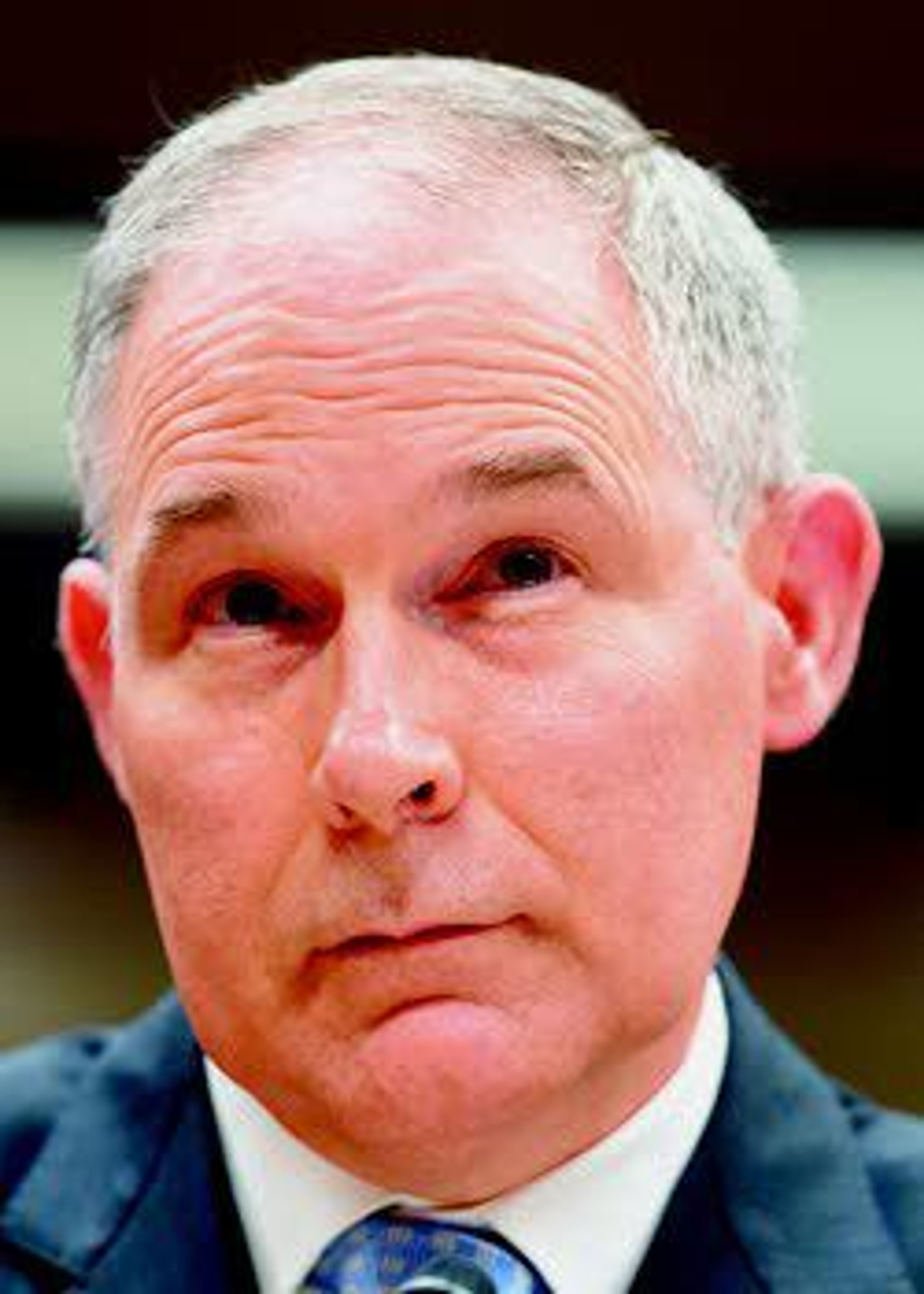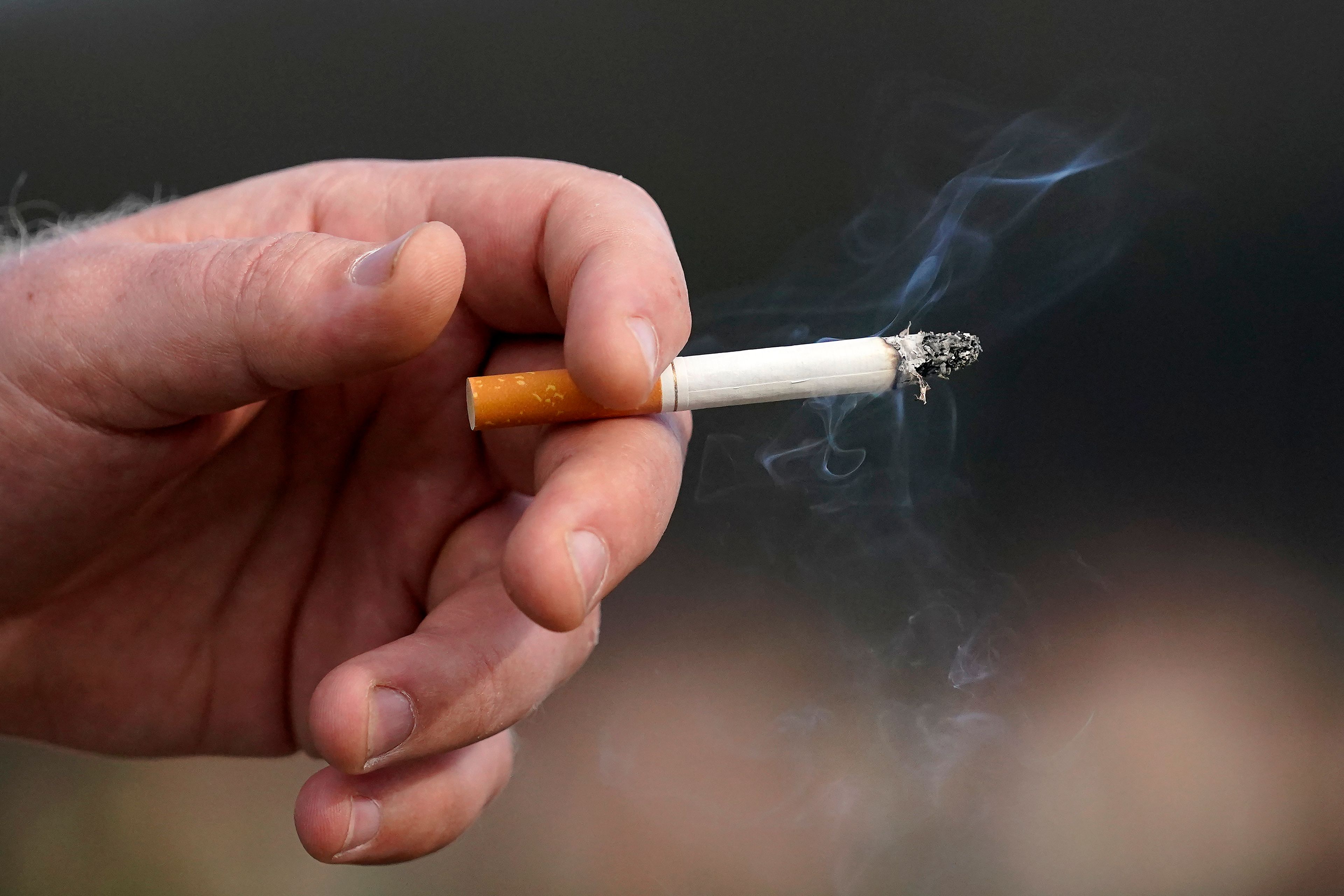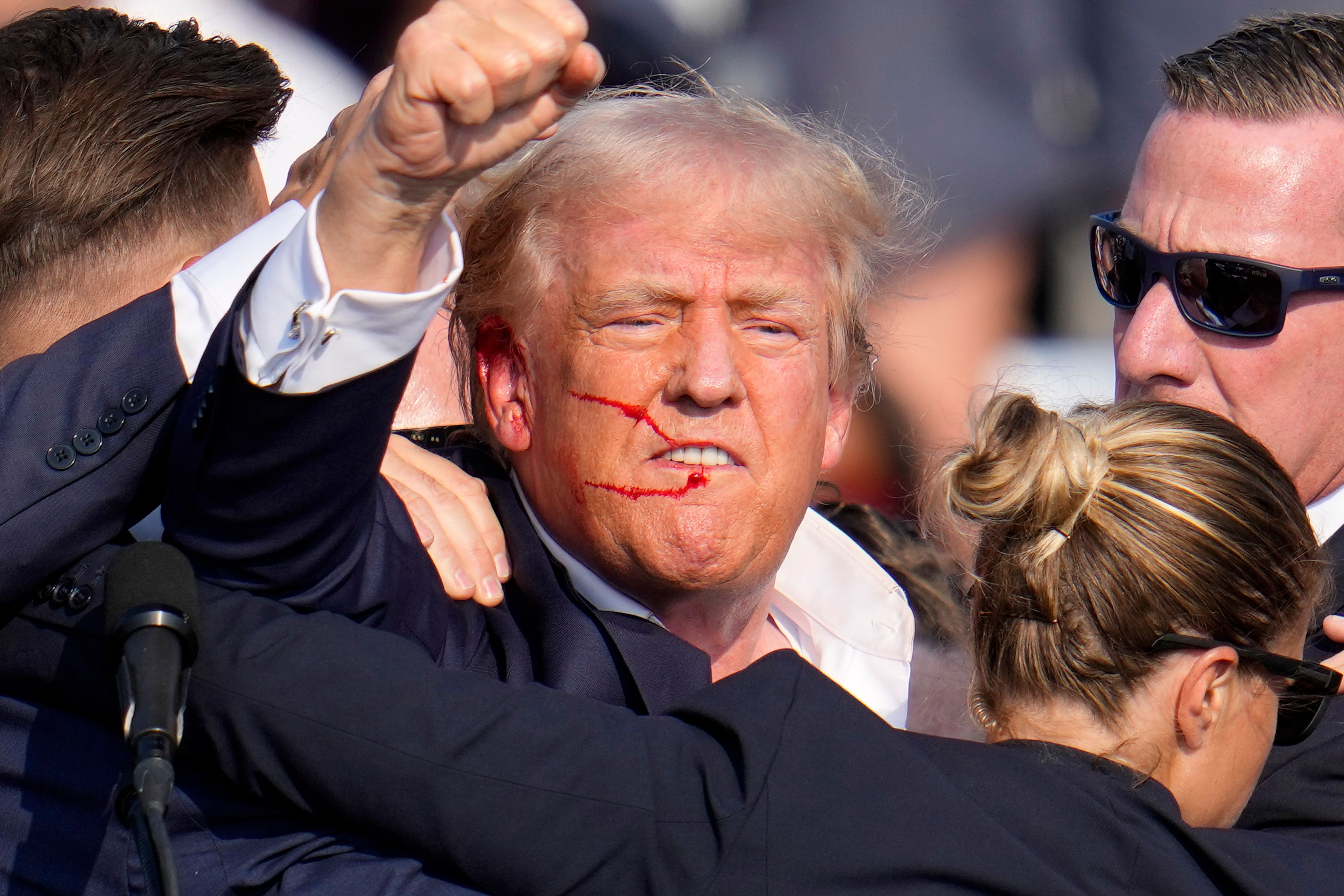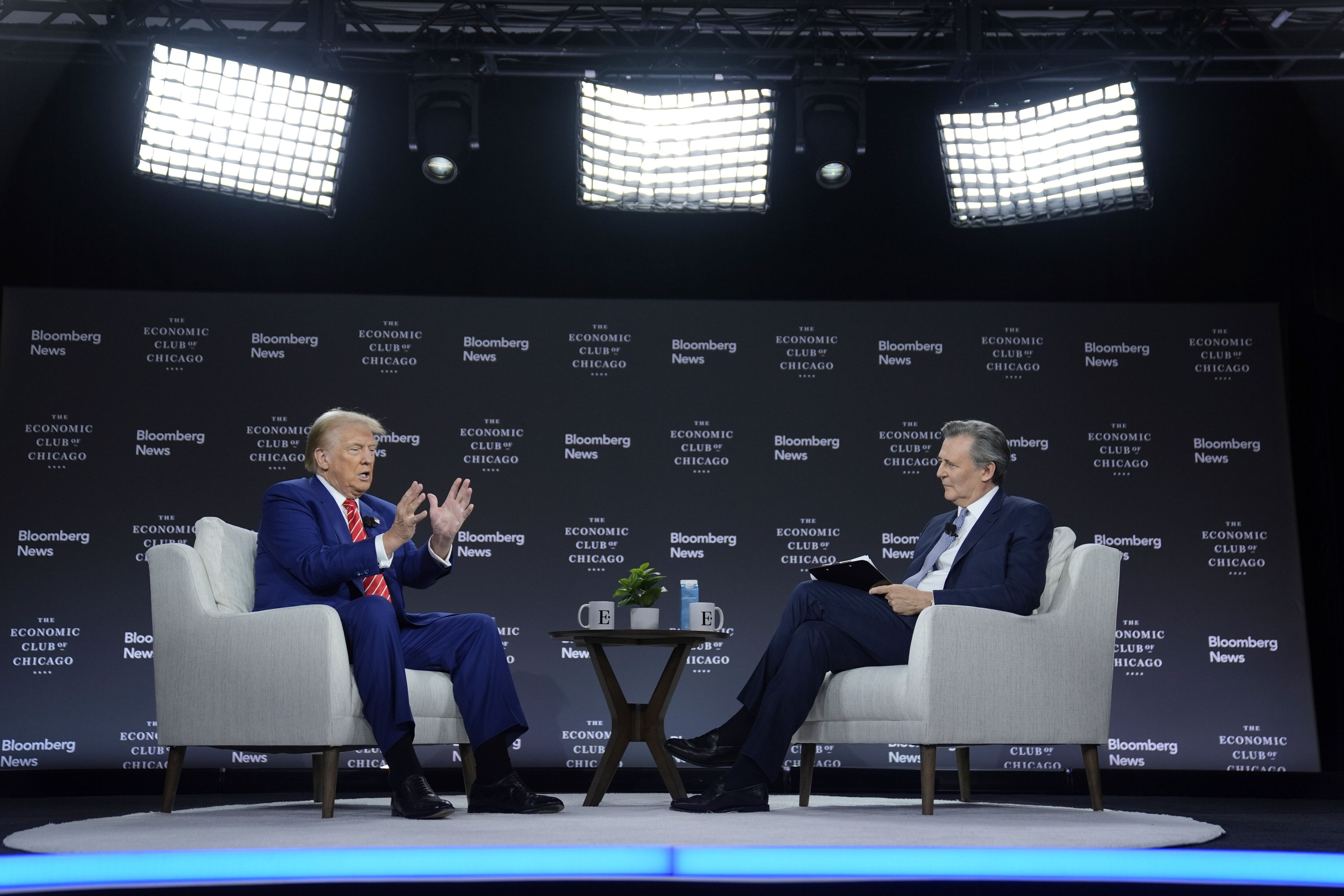EPA Administrator Scott Pruitt resigns
Trump says he hadn't asked for chief's resignation
WASHINGTON - Environmental Protection Agency Administrator Scott Pruitt resigned Thursday amid ethics investigations of outsized security spending, first-class flights and a sweetheart condo lease.
With Pruitt's departure, President Donald Trump loses an administrator many conservatives regarded as one of the more effective members of his Cabinet. But Pruitt had also been dogged for months by scandals that spawned more than a dozen federal and congressional investigations.
White House Chief of Staff John Kelly and other officials pushed Pruitt to tender his resignation Thursday amid the mounting scandals, according to a senior administration official not authorized to discuss the situation publicly. Talking to reporters on Air Force One, Trump continued to praise his scandal-plagued EPA chief, saying there was "no final straw" and he had not asked for Pruitt's resignation.
"Scott is a terrific guy," Trump said. "He came to me and said I have such great confidence in the administration I don't want to be a distraction. ... He'll go and do great things and have a wonderful life, I hope."
In his resignation letter to Trump, obtained by The Associated Press, Pruitt expressed no regrets.
"It is extremely difficult for me to cease serving you in this role first because I count it a blessing to be serving you in any capacity, but also, because of the transformative work that is occurring," Pruitt wrote. "However, the unrelenting attacks on me personally, my family, are unprecedented and have taken a sizable toll on all of us."
Pruitt, a Republican, had appeared Wednesday at a White House picnic for Independence Day, wearing a red-checked shirt and loafers with gold trim. Trump gave him and other officials a brief shout-out, offering no sign of any immediate change in his job.
EPA Deputy Administrator Andrew Wheeler, a former coal industry lobbyist, will take the helm as acting administrator starting Monday.
"I have no doubt that Andy will continue on with our great and lasting EPA agenda," Trump tweeted Thursday.
Pruitt's resignation came days after two of his closest advisers spoke to House oversight committee investigators and revealed new, embarrassing details in ethics scandals involving Pruitt.
Samantha Dravis, who recently resigned as Pruitt's policy chief, told investigators last week that Pruitt had made clear to her before and after he became EPA administrator that he would like the attorney general's job, held then and now by Jeff Sessions.
Pruitt "had hinted at that (sic) some sort of conversation had taken place between he and the president," Dravis told congressional investigators, according to a transcript obtained Thursday by the AP. "That was the position he was originally interested in."
A former Oklahoma attorney general close to the oil and gas industry, Pruitt had filed more than a dozen lawsuits against the agency he was picked to lead. Arriving in Washington, he worked relentlessly to dismantle Obama-era environmental regulations that aimed to reduce toxic pollution and planet-warming carbon emissions.
During his one-year tenure, Pruitt crisscrossed the country at taxpayer expense to speak with industry groups and hobnob with GOP donors, but he showed little interest in listening to advocates he derided as "the environmental left." Those groups quickly applauded his departure.
"Despite his brief tenure, Pruitt was the worst EPA chief in history," said Kieran Suckling, executive director of the Center for Biological Diversity. "His corruption was his downfall, but his pro-polluter policies will have our kids breathing dirtier air long after his many scandals are forgotten."
Like Trump, Pruitt voiced skepticism about mainstream climate science and was a fierce critic of the Paris climate agreement. The president cheered his EPA chief's moves to boost fossil fuel production and roll back regulations opposed by corporate interests.
But despite boasts of slashing red tape and promoting job creation, Pruitt had a mixed record of producing real-world results. Many of the EPA regulations Pruitt scraped or delayed had not yet taken effect, and the tens of thousands of lost coal mining jobs the president pledged to bring back never materialized.
Pruitt was forced out following a series of revelations involving pricey trips with first-class airline seats and unusual security spending, including a $43,000 soundproof booth for making private phone calls. He also demanded 24-hour-a-day protection from armed officers, resulting in a swollen 20-member security detail that blew through overtime budgets and racked up expenses of more than $3 million.
Pruitt routinely ordered his EPA staff to do personal chores for him, including picking up his dry cleaning and trying to obtain a used Trump hotel mattress for his apartment. He had also enlisted his staff to contact conservative groups and companies to find a lucrative job for his unemployed wife, including emails seeking a Chick-fil-A franchise from a senior executive at the fast-food chain.
Pruitt's job had been in jeopardy since the end of March, when ABC News first reported that he leased a Capitol Hill condo last year for just $50 a night. It was co-owned by the wife of a veteran fossil fuels lobbyist whose firm had sought regulatory rollbacks from EPA.
Both Pruitt and the lobbyist, Steven Hart, denied he had conducted any recent business with EPA. But Hart was later forced to admit he had met with Pruitt at EPA headquarters last summer after his firm, Williams & Jensen, revealed he had lobbied the agency on a required federal disclosure form.
Pruitt also publicly denied any knowledge of massive raises awarded to two close aides he had brought with him to EPA from Oklahoma. Documents later showed Pruitt's chief of staff had signed off on the pay hikes, indicating he had the administrator's consent.
The slew of damaging revelations, many of which came to light through media reports and public records lawsuits filed by environmental groups, triggered more than a dozen investigations related to Pruitt's conduct by EPA's Office of Inspector General, the House Oversight Committee and other federal watchdogs.
It was not immediately clear how Pruitt's resignation might affect those ongoing probes. No longer a federal employee, Pruitt can't be compelled to speak or otherwise cooperate with the inspector general's investigation. As a private citizen, he could still be subpoenaed to testify before Congress, but Republican-led committees have thus far shown little appetite in forcing him to do so.
Jennifer Kaplan, a spokeswoman for EPA Inspector General Arthur Elkins, said Thursday that the office was "assessing and evaluating" its ongoing audits and investigations in the wake of Pruitt's departure.
Sen. John Barrasso, the Republican chairman of the Senate Committee on Environment and Public Works and until Thursday a strong defender of Pruitt, said Trump made the right decision to accept the resignation.
"It has become increasingly challenging for the EPA to carry out its mission with the administrator under investigation," said Barrasso, who is from Wyoming.
Pruitt is the latest Trump Cabinet official to lose his job over ethics issues. Veterans Affairs Secretary David Shulkin was fired in March amid questionable travel charges and a growing rebellion in his agency about the privatization of medical care. Health and Human Services Secretary Tom Price was fired last year after it was disclosed he took costly charter flights instead of commercial planes.
"Mr. Pruitt's brazen abuse of his position for his own personal gain has been absolutely astounding, rivaled only by the silence of far too many in Congress and in the White House who allowed Mr. Pruitt's unethical, and, at times, possibly illegal behavior to go unchecked," said Democratic Sen. Tom Carper of Delaware, long a vocal critic of Pruitt's.









